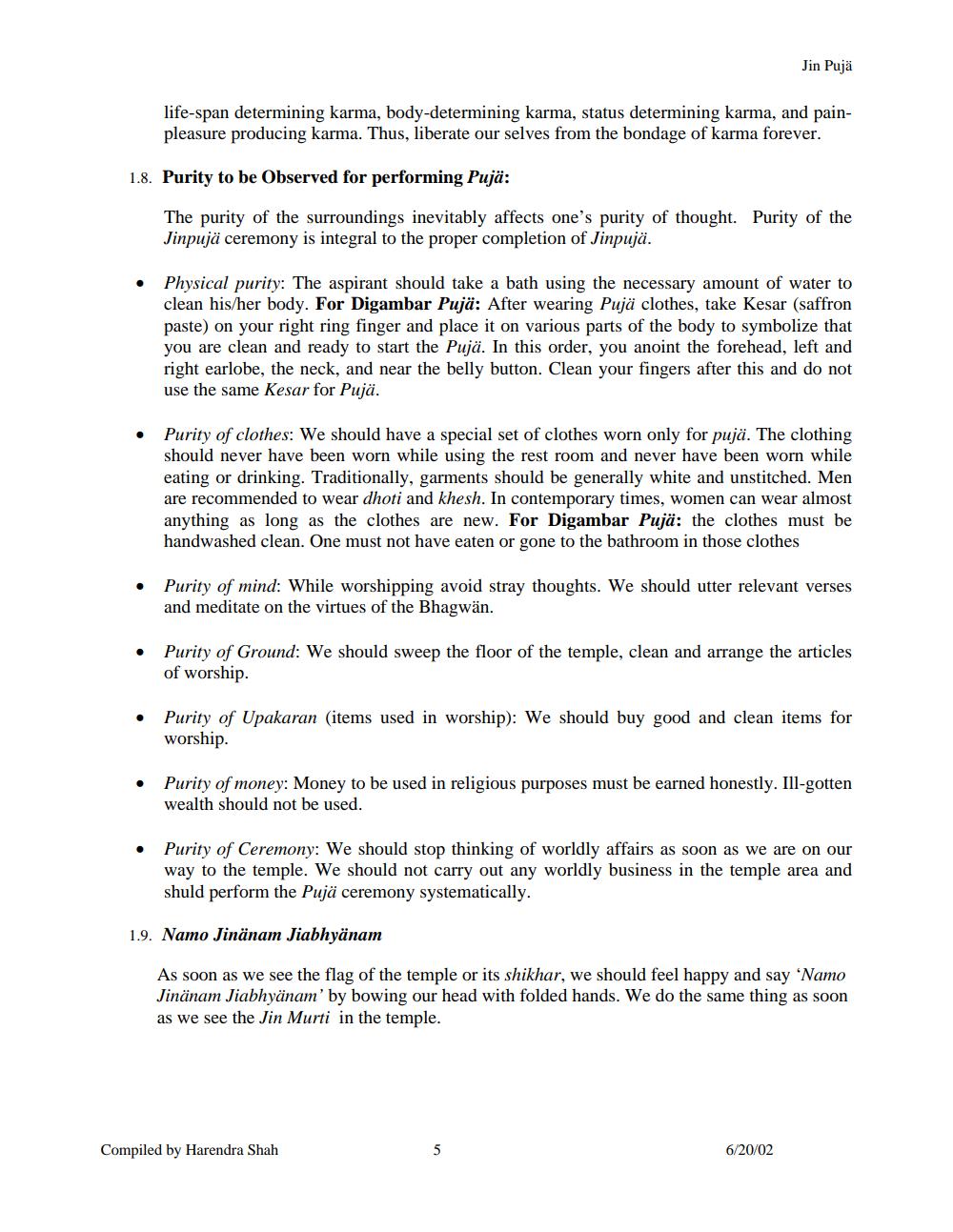________________
Jin Pujä
life-span determining karma, body-determining karma, status determining karma, and painpleasure producing karma. Thus, liberate our selves from the bondage of karma forever.
1.8. Purity to be Observed for performing Pujä:
The purity of the surroundings inevitably affects one's purity of thought. Purity of the Jinpujä сeremony is integral to the proper completion of Jinpujä.
Physical purity: The aspirant should take a bath using the necessary amount of water to clean his/her body. For Digambar Pujä: After wearing Pujä сlothes, take Kesar (saffron paste) on your right ring finger and place it on various parts of the body to symbolize that you are clean and ready to start the Pujä. In this order, you anoint the forehead, left and right earlobe, the neck, and near the belly button. Clean your fingers after this and do not use the same Kesar for Pujä.
Purity of clothes: We should have a special set of clothes worn only for pujä. The clothing should never have been worn while using the rest room and never have been worn while eating or drinking. Traditionally, garments should be generally white and unstitched. Men are recommended to wear dhoti and khesh. In contemporary times, women can wear almost anything as long as the clothes are new. For Digambar Pujä: the clothes must be handwashed clean. One must not have eaten or gone to the bathroom in those clothes
Purity of mind: While worshipping avoid stray thoughts. We should utter relevant verses and meditate on the virtues of the Bhagwän.
Purity of Ground: We should sweep the floor of the temple, clean and arrange the articles of worship.
Purity of Upakaran (items used in worship): We should buy good and clean items for worship.
Purity of money: Money to be used in religious purposes must be earned honestly. Ill-gotten wealth should not be used.
Purity of Ceremony: We should stop thinking of worldly affairs as soon as we are on our way to the temple. We should not carry out any worldly business in the temple area and shuld perform the Pujä сeremony systematically.
1.9. Namo Jinänam Jiabhyänam
As soon as we see the flag of the temple or its shikhar, we should feel happy and say 'Namo Jinänam Jiabhyänam' by bowing our head with folded hands. We do the same thing as soon as we see the Jin Murti in the temple.
Compiled by Harendra Shah
6/20/02




